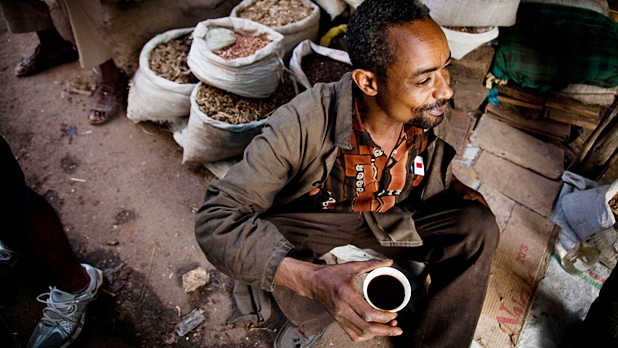Harar, Ethiopia’s Coffee Capital

Hidden far from the tourist and pilgrim paths that wind through eastern Ethiopia, Harar is a densely packed holy city that has retained its character and unbridled passion for all things coffee, despite centuries of struggle and conquest. Archaeologists claim the city was founded in the 10th century – legends say it existed far earlier – as a hub for Islamic traders and rapidly grew in importance. By the time European explorers were being turned away by the Sultan of Adal in the mid-1850s, the place was an independent city state hopped up on its own power and a lot of caffeine. The city fell to the Egyptians and was eventually incorporated into Ethiopia, but coffee bushes still thrive in almost every yard.
Harar is largely defined by the “Jugol,” the walled old city, which is so well preserved that it’s often referred to as a living museum. Within this 3.5-square-kilometer space sit 82 mosques and 102 shrines. They lean into 368 alleys, which serve as a warren for the city’s 40,000 inhabitants. UNESCO has declared every religious site and the one thousand traditional Adare homes within the walls a World Heritage Site. Read more



